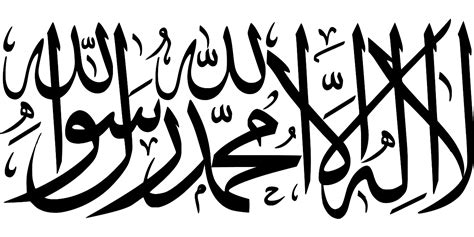Every person faces hardships, uncertainty, and moments when all logical solutions seem to fail. At such times, the Islamic concept of trusting Allah (tawakkul) emerges as an anchor of hope and peace. But what does it really mean to trust Allah, not the medium? How does Islam guide us to have unwavering faith in Allah’s plan, even when the means at our disposal seem questionable or insufficient? Whether you are a Muslim seeking deeper faith, or a non-Muslim curious about the Islamic outlook, this article provides clear, relatable insight for all.
What Does Trusting Allah Actually Mean?
The Definition of Tawakkul
Tawakkul in Islam means placing one’s full trust and reliance in Allah (SWT)—believing that He alone controls outcomes, sustenance, and relief. It is not abandoning effort, but knowing that every cause and result ultimately rests in the hands of Allah.
Quranic Foundation:
“…And put your trust in Allah if you are truly believers.” (Surah Al-Ma’idah, Ayah 23)
قَالَ رَجُلَانِ مِنَ ٱلَّذِینَ یَخَافُونَ أَنۡعَمَ ٱللَّهُ عَلَیۡهِمَا ٱدۡخُلُوا۟ عَلَیۡهِمُ ٱلۡبَابَ فَإِذَا دَخَلۡتُمُوهُ فَإِنَّكُمۡ غَـٰلِبُونَۚ وَعَلَى ٱللَّهِ فَتَوَكَّلُوۤا۟ إِن كُنتُم مُّؤۡمِنِینَ
Said two men from those who feared [to disobey] upon whom Allah had bestowed favor, “Enter upon them through the gate, for when you have entered it, you will be predominant. And upon Allah rely, if you should be believers.”
[5:23]
Tawakkul is not about passivity or ignoring practical action. Islam teaches us that while we must pursue means—work, medicine, planning—the true heart of success lies with Allah.
Hadith Foundation
The Prophet Muhammad (PBUH) said:
“If you were to rely upon Allah with the reliance due to Him, He would provide for you as He provides for the birds. They go out in the morning with empty stomachs but return full.”
(Sunan al-Tirmidhi, 2344)
This simple hadith shows that trusting Allah does not mean doing nothing. Birds leave their nests hungry and make effort, but their ultimate reliance is on the provision of Allah.
Lessons from the Quran: Musa’s Mother and Ibrahim’s Family
The Story of Musa (AS): Faith Over Fear
Imagine a mother, living under the shadow of a ruthless king, who has ordered that all newborn sons be killed. The mother of Musa (AS)—not a prophet herself, but a symbol of supreme faith—was commanded by Allah to do the unimaginable.
وَأَوۡحَیۡنَاۤ إِلَىٰۤ أُمِّ مُوسَىٰۤ أَنۡ أَرۡضِعِیهِۖ فَإِذَا خِفۡتِ عَلَیۡهِ فَأَلۡقِیهِ فِی ٱلۡیَمِّ وَلَا تَخَافِی وَلَا تَحۡزَنِیۤۖ إِنَّا رَاۤدُّوهُ إِلَیۡكِ وَجَاعِلُوهُ مِنَ ٱلۡمُرۡسَلِینَ
And We inspired to the mother of Moses, “Suckle him; but when you fear for him, cast him into the river and do not fear and do not grieve. Indeed, We will return him to you and will make him [one] of the messengers.”
[28:7]
She did not worry about the river currents or the dangers ahead. She trusted Allah completely. Ironically, the river brought her son right back into her arms, under Pharaoh’s very protection—the same man killing infants. Musa (AS) was returned to his mother so she could nurse him, fulfilling Allah’s promise.
Reflection:
Her example teaches us to look beyond apparent dangers and trust Allah’s promise, even when logic falters.
The Story of Ibrahim (AS): Leaving Hajar and Ismail in the Desert
Prophet Ibrahim (AS) was commanded to leave his wife Hajar (RA) and their infant son Ismail (AS) in the barren desert of Mecca, with no food or water.
رَّبَّنَاۤ إِنِّیۤ أَسۡكَنتُ مِن ذُرِّیَّتِی بِوَادٍ غَیۡرِ ذِی زَرۡعٍ عِندَ بَیۡتِكَ ٱلۡمُحَرَّمِ رَبَّنَا لِیُقِیمُوا۟ ٱلصَّلَوٰةَ فَٱجۡعَلۡ أَفۡـِٔدَةࣰ مِّنَ ٱلنَّاسِ تَهۡوِیۤ إِلَیۡهِمۡ وَٱرۡزُقۡهُم مِّنَ ٱلثَّمَرَ ٰتِ لَعَلَّهُمۡ یَشۡكُرُونَ
Our Lord, I have settled some of my descendants in an uncultivated valley near Your sacred House, our Lord, that they may establish prayer. So make hearts among the people incline toward them and provide for them from the fruits that they might be grateful.
[14:37]
Hajar (RA) asked, “Has Allah ordered you to do so?” Ibrahim (AS) replied, “Yes.” She responded, “Then He will not neglect us.” [Sahih al-Bukhari]
Out of this act of trust came the spring of Zamzam and the establishment of Makkah itself. Today, every pilgrim performing Umrah and Hajj re-enacts Hajar’s search between Safa and Marwa, a timeless symbol of tawakkul loved by Allah.
Takeaway Lesson
Both narratives show that true trust in Allah means not being obsessed with the means or predicted outcomes. Both Musa’s mother and Ibrahim (AS) did their part, then left the results to Allah.
Trust, Provision, and Birds: Rizq Comes from Allah
Rizq (Provision) Is from Allah Alone
Modern anxieties often center around money, jobs, and sustenance. Islam radically shifts our mindset: your provision (rizq) is written and secured by Allah.
وَیَرۡزُقۡهُ مِنۡ حَیۡثُ لَا یَحۡتَسِبُۚ وَمَن یَتَوَكَّلۡ عَلَى ٱللَّهِ فَهُوَ حَسۡبُهُۥۤۚ إِنَّ ٱللَّهَ بَـٰلِغُ أَمۡرِهِۦۚ قَدۡ جَعَلَ ٱللَّهُ لِكُلِّ شَیۡءࣲ قَدۡرࣰا
And will provide for him from where he does not expect. And whoever relies upon Allah – then He is sufficient for him. Indeed, Allah will accomplish His purpose. Allah has already set for everything a [decreed] extent.
[65:3]
We are commanded to seek our sustenance through halal means, not to resort to haram for the sake of extra income. Allah determines your portion; seeking more through forbidden ways brings not barakah (blessing), but hardship.
The Hadith of the Birds
The Prophet Muhammad (PBUH) beautifully taught,
“If you were to rely upon Allah with reliance due to Him, He would provide for you just as He provides for the birds. They leave hungry in the morning and return full in the evening.”
(Sunan al-Tirmidhi, 2344)
Birds don’t store for months; they go out daily, work hard, and trust the outcome to Allah. This balance of effort and trust embodies the perfect Islamic approach.
Trust in Allah and the Use of Means: Work, Medicine, and Effort
Taking Action Is Essential—but Trust Remains with Allah
Islamic scholars agree: putting trust in Allah never means neglecting effort. Taking medicine, seeking work, or planning for the future is not against tawakkul; it is part of it.
“Using medicine does not contradict the idea of putting one’s trust in Allah…Neglecting the means undermines the essence of putting one’s trust in Allah… Alongside this dependence one must also take the means, otherwise one will be ignoring the wisdom and command of Allah.”
The key is to remember, medicine is a cause, Allah is the Curer. Modern stress arises when people believe the means alone will save them. But results are in Allah’s control; contentment comes from trust alongside effort.
Common Misconceptions and Today’s Challenges
Misplaced Trust: Relying Only on the Means
In the rush for material success or health, many now act as if all depends on their own efforts or on the tools they use—money, medicine, connections, etc.. Islam warns that this leads to anxiety, greed, and loss of contentment.
Reflection:
- Running after riches through haram means does not bring blessings.
- Panicking over medicine or treatments, thinking “only this drug will cure me,” ignores Allah’s power.
- Overthinking and stress about the future is a sign of deficient trust.
Why Overreliance on the Means Fails
Islam teaches:
- We are responsible only for our effort and intention; the outcome is up to Allah.
- Worrying about what is not under your control increases mental anguish and diminishes spiritual peace.
لَا یُكَلِّفُ ٱللَّهُ نَفۡسًا إِلَّا وُسۡعَهَاۚ لَهَا مَا كَسَبَتۡ وَعَلَیۡهَا مَا ٱكۡتَسَبَتۡۗ رَبَّنَا لَا تُؤَاخِذۡنَاۤ إِن نَّسِینَاۤ أَوۡ أَخۡطَأۡنَاۚ رَبَّنَا وَلَا تَحۡمِلۡ عَلَیۡنَاۤ إِصۡرࣰا كَمَا حَمَلۡتَهُۥ عَلَى ٱلَّذِینَ مِن قَبۡلِنَاۚ رَبَّنَا وَلَا تُحَمِّلۡنَا مَا لَا طَاقَةَ لَنَا بِهِۦۖ وَٱعۡفُ عَنَّا وَٱغۡفِرۡ لَنَا وَٱرۡحَمۡنَاۤۚ أَنتَ مَوۡلَىٰنَا فَٱنصُرۡنَا عَلَى ٱلۡقَوۡمِ ٱلۡكَـٰفِرِینَ
Allah does not charge a soul except [with that within] its capacity. It will have [the consequence of] what [good] it has gained, and it will bear [the consequence of] what [evil] it has earned. “Our Lord, do not impose blame upon us if we have forgotten or erred. Our Lord, and lay not upon us a burden like that which You laid upon those before us. Our Lord, and burden us not with that which we have no ability to bear. And pardon us; and forgive us; and have mercy upon us. You are our protector, so give us victory over the disbelieving people.”
[2:286]
How to Build and Live Tawakkul—Practical Steps
1. Do Your Best—Then Let Go
- Work hard.
- Seek knowledge.
- Take preventive and remedial action (including medicine).
- Make dua and put your heart’s outcome entirely in Allah’s hands.
2. Stay Within Halal
- Do not resort to haram for extra income.
- Trust that your rizq is guaranteed as long as you strive righteously.
3. Practice Gratitude
Allah says,
“If you are grateful, I will surely increase you [in favor]; but if you deny, indeed, My punishment is severe.”
(Surah Ibrahim, Ayah 7; Tafhim al-Quran)
[Image: Arabic text of Surah Ibrahim, Ayah 7]
Gratitude opens the doors of more blessings.
4. Use Means, Rely on Allah
Medicine is a means; Allah is the Curer. Jobs are means; Allah is the Sustainer.
5. Regular Reflection and Dua
Make dua for your needs, guidance, and for increasing your tawakkul. The Prophet (PBUH) often prayed for a heart firm upon faith.
Inspiring Quotes and Verses (For Practical Copy)
“And whoever trusts in Allah, then He will suffice him.”
(Surah At-Talaq, Ayah 3; Tafhim al-Quran)
“If you are grateful, I will surely increase you [in favor]…”
(Surah Ibrahim, Ayah 7; Tafhim al-Quran)
“Put your trust in Allah: Allah is sufficient as Guardian.”
(Surah Al-Ahzab, Ayah 3; Tafhim al-Quran)
Start Today!
Remember, Allah (SWT) is the best well-wisher you will ever have. He gains nothing from your struggle or pain—in fact, it is only you who stand to gain or lose. So:
- Begin every day by placing your trust in Allah, no matter what the situation.
- Do your part, seek halal, and leave the rest to Him.
- Read the inspiring stories of Musa’s mother, Ibrahim, and Hajar as reminders of what is possible through true faith.
- Make tawakkul your daily practice, not just a theory.
As the Prophet Muhammad (PBUH) taught us, “Allah alone is sufficient for us, and He is the best to take care of our affairs.”
ٱلَّذِینَ قَالَ لَهُمُ ٱلنَّاسُ إِنَّ ٱلنَّاسَ قَدۡ جَمَعُوا۟ لَكُمۡ فَٱخۡشَوۡهُمۡ فَزَادَهُمۡ إِیمَـٰنࣰا وَقَالُوا۟ حَسۡبُنَا ٱللَّهُ وَنِعۡمَ ٱلۡوَكِیلُ
Those to whom hypocrites said, “Indeed, the people have gathered against you, so fear them.” But it [merely] increased them in faith, and they said, “Sufficient for us is Allah, and [He is] the best Disposer of affairs.”
[3:173]
Trusting in Allah, not the medium, is a core Islamic value that transforms anxiety into serenity, effort into worship, and trials into triumphs. By anchoring our hearts in Allah’s wisdom and mercy, we find true peace—knowing that whatever comes our way is part of a plan far greater and kinder than we can imagine.
Let us strive to live each day with renewed tawakkul. For just as Allah returned Musa (AS) to his mother, caused water to gush for Hajar, and sustains every bird, He will provide, protect, and elevate all who truly trust Him.





